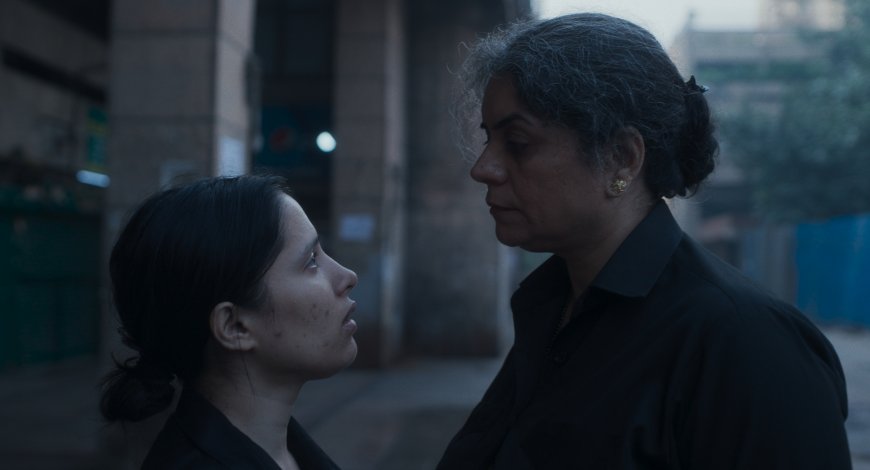Review: Taak (2024)

Udit Khurana’s short film Taak is a tense and unsparing look at how surveillance quietly enters the lives of people already on the margins. Set in Delhi, it follows two migrant women trying to survive while holding on to their sense of self. The film balances the personal struggles of both women working as bouncers in a nightclub with a wider commentary on the systems of power that shape their lives.
Shalini (Jyoti Dogra), once a wrestling champion and now a single mother, holds down a precarious existence as head of security at a nightclub. When a breach exposes lapses in protocol, the management responds with a predictably authoritarian reflex. Employees are now required to wear smartwatches, allowing the employer to track their movements in real-time. At first, Shalini appears complicit in enforcing the new rules, ensuring her team falls in line, even as her authority rests on brittle ground. The tension crystallises around Komal (Ambika Kamal), a recruit from her village whose refusal to submit to digital tracking is less an act of rebellion than a refusal to be reduced to data.
The film revolves around the relationship between Shalini and Komal. Both of them were once sportswomen. Shalini is weighed down by the financial pressures of raising her son single-handedly, along with the disgrace of her past as an athlete after a doping scandal. Komal carries the scars of a violent marriage. Her refusal to wear the tracker stems from personal suffering and an unyielding sense of self. But Taak is not really about the jobs or daily struggles of Shalini and Komal. What stands out are their inner lives, their desires, disappointments, and hidden motives. Shalini has her family issues, but Komal’s secrets are darker and more toxic. This tension builds towards a gripping finale, as Shalini’s admiration for Komal shifts into anger and finally, a form of redemption. At its heart, the film shows that what binds the two women is their genuine, if thwarted, longing for care and support in each other’s presence.
What Khurana shows, with quiet precision, is a moral conflict in miniature, as both women are constantly under surveillance. The film reveals how the concern for safety and efficiency can quickly turn into an instrument of control, and how easily that control is accepted. He takes familiar elements of the genre and brings them to life, steering the film away from miserabilism.
Jyoti Dogra’s performance as Shalini anchors the film, weighted with restraint and unspoken pain, while Ambika Kamal’s Komal provides a sharp counterpoint with her defiance, preventing the character from slipping into victimhood. The cinematography by Tarkash Mehta works by staying close to the characters, creating intimacy and a sense of shared privacy, as though we are travelling with them on their bleak journey.
Absorbing in its unhurried approach, Taak slowly reveals the tribulations of its central character. More than a story about surveillance technology, it is about the fragility of women’s agency in a world eager to police it. Throughout its thirty-nine minutes runtime, the film leaves a chilling aftertaste. The lights of the nightclub may fade at dawn, but the watch never comes off.
Taak was recently screened at the 25th edition of the New York Indian Film Festival.
What's Your Reaction?

































































